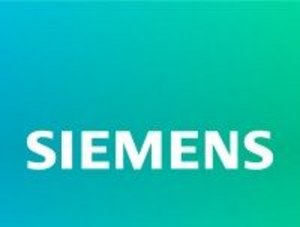Top 10 IIoT companies in manufacturing
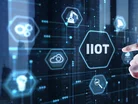
Professor Klaus Schwab, the Founder of the World Economic Forum, suggested in 2016 that humanity was in the next Industrial Revolution: Industry 4.0. This industry includes the use of AI technology, self-driving cars and genetic editing.
The Internet of Things (IoT) plays a role in this, with up to 18bn IoT devices at work globally today. IoT is a network of physical ‘things’ which carry sensors or software to exchange data between devices via the internet, meaning less laborious tasks for humans.
Meanwhile, the Industrial Internet of Things (IIoT) is a form of smart manufacturing which fuses information technology with operational technology. One example for IIoT is used throughout the automotive industry, where devices are used to spot deficiencies on items before they are sold. The global IIoT market was valued at USD$216bn in 2020 and is predicted to reach USD$1tn by 2028.
Here are our Top 10 IIoT companies in the manufacturing sector.
10. Seeq Corporation
Seattle, Washington, USA
100 employees
CEO: Lisa Graham
Revenue: USD$3mn
Seeq Corporation develops software and services that accelerate industrial process analytics on industrial process data. The company’s analysis tools are typically used for industrial markets like oil refineries, pharmaceuticals, and energy production. Based in Seattle, the company holds offices across the western United States and Canada.
As a leader in manufacturing and the Industrial Internet of Things, Seeq Corporation uses advanced analytics software with Amazon Web Services (AWS) Manufacturing and Industrial Competency.
"Seeq is proud to achieve the AWS Manufacturing and Industrial Competency," said Dr. Lisa Graham, CEO at Seeq. "By choosing Seeq on AWS, industrial organisations can easily access advanced analytics capabilities to improve production and business success."
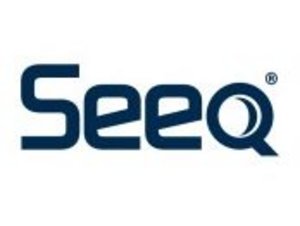
LinkedIn: Seeq Corporation
Twitter: @SeeqCorporation
9. Hitachi Vantara
Santa Clara, California, USA
12,000 employees
CEO: Gajen Kandiah
Revenue: USD$2.5bn
Hitachi Vantara, a wholly-owned subsidiary of Hitachi, Ltd., assists their customers by solving digital challenges. More than 80% of the Fortune 100 trust Hitachi Vantara to help develop new revenue streams, unlock competitive advantages, lower costs, enhance customer experiences, and deliver social and environmental value.
Hitachi Vantara has strengthened its IIoT and analytics platform with technology acquired from various startups. The combination has created an analytics platform that can work in industrial data use cases.
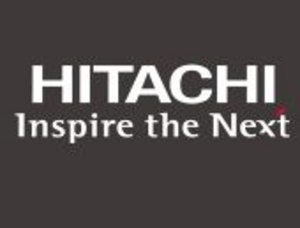
LinkedIn: Hitachi Vantara
Twitter: @HitachiVantara
8. Softeq
Houston, Texas, USA
300 employees
CEO: Chris Howard
Revenue: USD$12mn
Softeq assists in digital transformation by identifying new business opportunities and applying new technologies and IT systems for its clients. One of the fastest-growing private companies in the US, it provides expertise in trending technologies including the Internet of Things, AI and Machine Learning, Industrial Automation, Robotics, Blockchain, and AR/VR.
Using Softeq’s IIoT solutions, customers can add smart capabilities to analog equipment, automate manufacturing processes and drive up their production levels. Softeq’s IIoT is ready to support customers through business changes and assist organisational transformation.
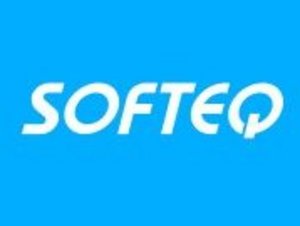
7. PTC
Boston, Massachusetts, USA
6,000 employees
CEO: James Heppelmann
Revenue: USD$1.9bn
PTC’s industrial innovation allows companies to transform their products and services, update operations and make way for better workforce productivity. PTC helps manufacturers use new technologies to accelerate digital transformation.
PTC’s IIoT products include the ThingWorx IIoT platform, which was designed to solve common problems in workforce efficiency and asset optimisation.
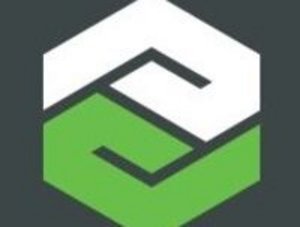
6. Cognite
Lysaker, Bærum, Norway
500 employees
CEO: Girish Rishi
Revenue: USD$45mn
Cognite is a global industrial Software-as-a-Service (SaaS) leader, with a drive to digitalise the industrial world. The company’s software product is Cognite Data Fusion (CDF) and is designed to contextualise data to develop and scale company solutions, using technology like hybrid AI, big data, machine learning and 3D modelling. Currently, Cognite assists customers in operating through transitions sustainably.
“Cognite was founded to solve the industrial data problem, to help industry be able to transform, both to be more effective and more sustainable,” said John Markus Lervik, Founder of Cognite.
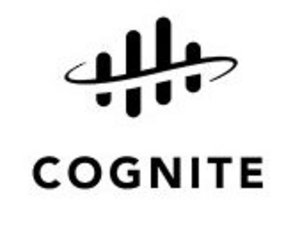
LinkedIn: Cognite
Twitter: @CogniteData
5. Johnson Controls
Cork, Ireland
102,000 employees
CEO: George Oliver
Revenue: USD$25bn
As a global leader in smart and sustainable schools, data centres, airports and more, Johnson Controls is transforming the way people live, with an aim to create buildings that can better support people and the planet. The company is active across sectors such as automotive, construction, infrastructure, transportation and utilities, key customers include Morgan Stanley, Ericsson and Jaguar Land Rover.
The company provides Industrial IoT cybersecurity and privacy, networks, connectivity, sensors and various automation technologies.
In 2022, CEO George Oliver was named ‘IoT Company CEO of the Year’ by the IoT Breakthrough Awards programme.
“I’m incredibly honoured to receive this recognition from IoT Breakthrough,” he said.
LinkedIn: Johnson Controls
Twitter: @johnsoncontrols
4. Toshiba Corporation
Tokyo, Japan
116,000 employees
CEO: Taro Shimada
Revenue: USD$25bn
Toshiba Group is driven to build a sustainable future for all with its innovative technologies, such as televisions and laptops.
As a provider of Industrial IoT application infrastructure and middleware, automation, control, and various other technologies, Toshiba uses this technology across many industries, including mining, oil and gas, healthcare, hospitals, agriculture, food and beverage.
“Our biggest challenge is to make IIoT and cyber physical systems (CPS) a business initiative for our customers – to show the value of this service when the return on investment might not be immediately apparent,” said Hiroshi Yamamoto, Toshiba’s Corporate Digitisation Chief Technology Officer.
LinkedIn: Toshiba Corporation
Twitter: @ToshibaMEA
3. Mitsubishi
Tokyo, Japan
145,000 employees
CEO: Takao Kato
Revenue: USD$8bn
Founded in Japan in 1921, Mitsubishi manufactures everything from air conditioning units to escalators, automation systems to transport. The company is a global leader in the sale of electronic equipment. The company has just launched one of Japan's largest decarbonisation funds with a US$1bn investment plan targeting emerging technology startups.
Using Industrial Internet of Things, Mitsubishi Electric Automation uses an MTConnect adapter to enable shop floor monitoring, where machines and pieces of electrical equipment from different manufacturers can communicate.
LinkedIn: Mitsubishi Electric Corporation
Twitter: @MHI_Group
2. Schneider Electric
Paris, France
162,000 employees
CEO: Jean-Pascal Tricoire
Revenue: €34bn
Schneider Electric was recognised as the world’s most sustainable company in 2021 by Corporate Knights Global 100 Index. Its business mission is to be the digital partner of choice for those looking to increase their sustainability credentials.
Software company MicroEJ has endorsed Schneider Electric's attitude to IIoT.
“MicroEJ software containers offer developers unique capabilities for rapid customization, over-the-air updates, and software reuse of a wide range of IIoT products,” said Fred Rivard, CEO at MicroEJ. “Now paired with Schneider Electric’s powerful EcoStruxure, MicroEJ enables developers to usher in a new era of energy infrastructure.”
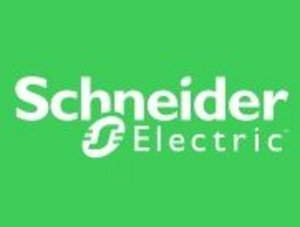
LinkedIn: Schneider Electric
Twitter: @SchneiderElec
1. Siemens
Munich, Germany
311,000 Employees
CEO: Roland Busch
Revenue: €86bn
Technology giant Siemens is focused on infrastructure, transport and the healthcare sector. The company aims to build more efficient factories, stronger supply chains and create cleaner methods of transportation as well as advanced healthcare, the company creates technology with purpose adding real value for customers.
Siemens will begin working with information and communications technology services and solutions provider, Detecon Al Saudia Co. (DETASAD), to bring Siemens’ IIoT to the Kingdom of Saudi Arabia.
Siemens Energy CEO Christian Bruch, is excited about the role Saudi Arabia can play.
“We are currently in various discussions with them and with the government agencies to identify opportunities for innovation. We have a state-of-the-art manufacturing hub in Dammam, the largest facility of its kind in the region, where we plan to co-develop the technologies of the future.”
